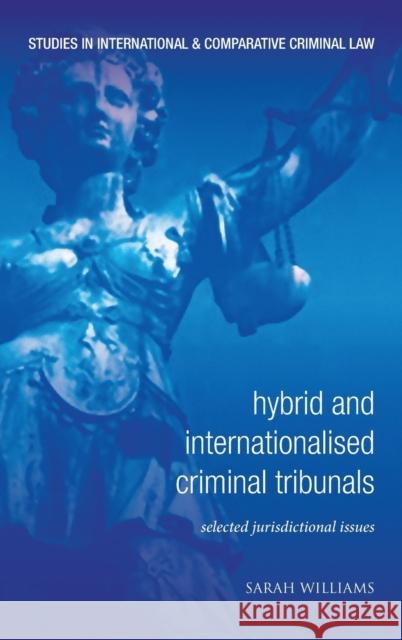Hybrid and Internationalised Criminal Tribunals: Selected Jurisdictional Issues » książka
Hybrid and Internationalised Criminal Tribunals: Selected Jurisdictional Issues
ISBN-13: 9781841136721 / Angielski / Twarda / 2012 / 520 str.
In recent years, a number of criminal tribunals have been established to investigate, prosecute, and try individuals accused of serious violations of international humanitarian law and international human rights. These tribunals have been described as 'hybrid' or 'internationalized' tribunals, as their structure and applicable law consist of both international and national elements. Five such tribunals are currently in operation: the Special Court for Sierra Leone, the Extraordinary Chambers in the Courts of Cambodia, Regulation 64 panels in Kosovo, the War Crimes Chamber for Bosnia and Herzegovina, and the Iraqi High Tribunal. The Special Panels for Serious Crimes in East Timor suspended operation in May 2005, while the Lebanese Special Tribunal is being established. Suggestions have been made that this model of tribunal would also be appropriate for the prosecution of atrocities committed in Burundi, the Sudan, Afghanistan, Palestine and the Occupied Territories, and Liberia. The contents of this book include: an examination of the increasing role of hybrid and internationalized judicial institutions in prosecuting international crimes * an outline of the basic features of the existing and proposed hybrid or internationalized tribunals * the definition and categorization of the tribunals * a determination of the jurisdictional basis of each tribunal * an analysis of how the jurisdictional basis affects other issues, such as the applicable law, the application of amnesties and immunities, and the relationship of these tribunals with the host state, third states, national courts, and other international criminal tribunals. The book concentrates on the jurisdictional aspects of hybrid and internationalized criminal tribunals, as this has been the subject of confusion in arguments before the tribunals and in the judgments of the tribunals. In its concluding section, the book examines the future role of internationalized and hybrid criminal tribunals, particularly in light of the establishment of the International Criminal Court and the potential use of such tribunals in other contexts. It also assesses how hybrid and internationalized tribunals fit into a 'multi-layered framework' of international criminal law and transitional justice, which is developing its own normative framework. (Series: Studies in International and Comparative Criminal Law - Vol. 9)











